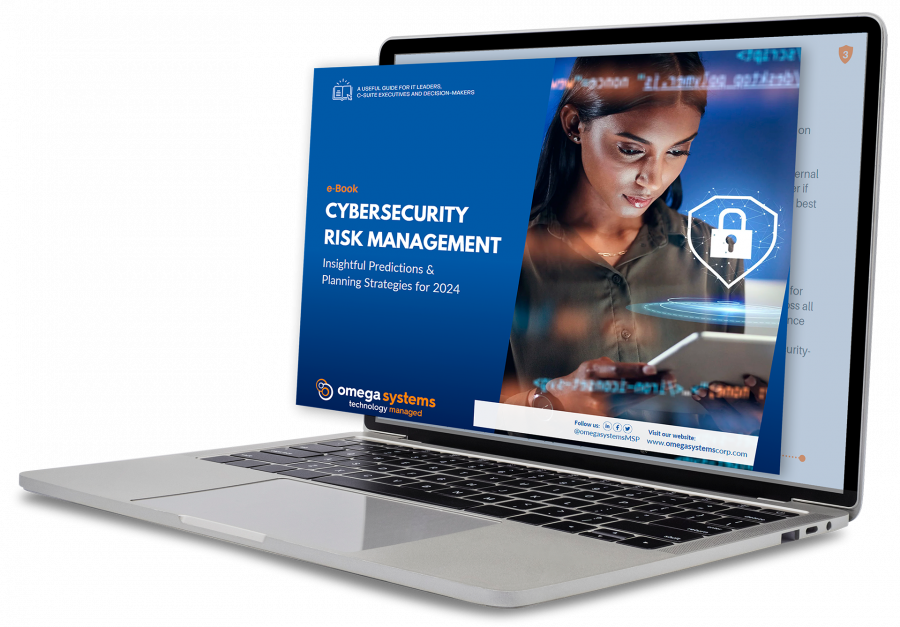
Ask yourself, is your business currently protected with the latest cybersecurity technology? If you’re like most business owners, you probably don’t have the time to worry about such things, but you should. We'll tell you why in this blog post.
While many types of insurance have been around for centuries, cybersecurity insurance (also called cyber liability insurance) is relatively new. Put simply, this type of coverage affords your business protection from financial loss should your technological systems or customer data be targeted in a cybersecurity incident.
Given how cyber risks fluctuate (and scarily so), cybersecurity policies must change and adapt frequently. Underwriters have access to data that helps them calculate risk and set policy rates, premiums, and coverage. For cybersecurity insurance, however, it’s not that simple. This hurdle is because cyber liability insurance is new, and the data is limited.
5 Things You Need to Know About Cybersecurity Insurance

In April 2011, the PlayStation Network suffered a breach by hackers. This breach exposed the personal data of 77 million users. This meant that PlayStation users were unable to access the service for 23 days. In terms of cost to Sony, there were over 171 million dollars lost and multiple lawsuits due to this breach. It’s one of the biggest data breaches in history.
Sony could have saved themselves some of the $171 million had they secured a cybersecurity insurance policy—but they didn’t. A subsequent court case ruled that their insurance policy only covered physical damage, which meant that Sony had to pay the costs of the losses from the cyberattack.
As you know, losing data through theft or compromise has the potential to harm your organization. It can mean customers go elsewhere and cause your business a loss in revenue. What’s more, without cybersecurity insurance, your company could be liable for any damages that stem from third-party data being stolen or compromised. Losing client data without a backup plan in place could be a disaster.

Cybersecurity insurance is essential if you want to protect your business against cyber event risks, including threats linked to terrorism. Furthermore, coverage for cyber threats can help remediate cyber incidents quickly and could save your business.
However, by no means will it make your business invincible against cybercrimes. Even after taking out a trustworthy policy, your Managed Service Provider should continue providing first-class security solutions to your business. The more levels of top-quality protection you employ, the safer your business will be.

Many insurance providers that offer coverage like commercial property insurance or business liability insurance will also provide cybersecurity insurance. Most cybersecurity policies cover the first party (losses that impact a company directly) and third-party losses (losses by other people caused by a cybersecurity incident, depending on their relationship with the organization).
Cybersecurity insurance will help cover any losses resulting from cyber incidents and events. What’s more, it can also help with costs linked to remediation, such as paying for legal assistance, crisis communicators, investigators, customer refunds, and loss to customer accounts. We recommend speaking to your provider to confirm whether or not Ransomware is included in your policy.
Companies that manage, store, or create electronic data like contacts, sales, or credit card information will benefit from cybersecurity insurance. E-commerce companies can also benefit from cyber coverage. Besides losing money, downtime from a cyber event can potentially lose customers and sales.

In the same vein, any company storing client information online will benefit from cybersecurity insurance and its liability coverage. But be forewarned that not every business will qualify for this type of insurance. You’ll need to prove that you are doing everything possible to secure your data. If you’re not sure if your cybersecurity is the best it can be, that’s something TNS can help you figure out.

When you purchase a cybersecurity insurance policy, check the policy documents carefully. Depending on the policy type, you may lack some coverage you wanted, or you might have coverage for things you weren’t aware of. Examples include paying legal fees, costs of notifying customers, meeting ransomware demands, costs of recovering data, etc. Make sure you’re happy with your coverage before you sign on the dotted line.
Since it hasn’t been around very long, policies and prices vary between providers. Therefore, businesses need to think carefully about what they would like covered in their cyber insurance policy. Depending on the industry, different organizations will need different types of coverage.
Why Choosing the Right MSP Is Important
Taking out an insurance policy for cybersecurity is not as simple as some business owners think. More than just adding such a plan, there is the matter of making sure you get paid back any losses. Having an award-winning Managed Service Provider help you through the process is a good idea. We can help define what coverage your business will need.
Experts say that the rate of cybercrime is expected to escalate even further in 2022. The bottom line is, if you don’t have coverage against cyber threats, look into getting it as soon as possible. Without it, you may risk making the same mistake as Sony did.
If you have any questions, contact The TNS Group today. Let’s talk about how security, protection, and cybersecurity insurance can help with the growth and success of your business this year!
Share this blog post with your colleagues and friends. Follow The TNS Group on Facebook, Twitter, Instagram, or LinkedIn.
Categories: Managed Service Provider, MSP Blogs, Solution Blogs




